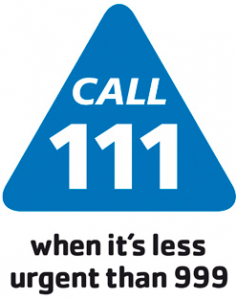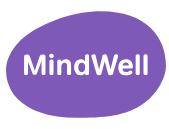
Contact Us
Tel: 0113 843 4388
Email: leeds.mws@nhs.net.
Our office opening hours are:
Monday, 8:00am - 6:00pm
Tuesday, 8:00am - 4:00pm
Wednesday, 8:00am - 4:00pm
Thursday, 8:00am - 6:00pm
Friday, 8:00am - 4:00pm
Please note we are closed on Bank Holidays.
Find Us
Burmantofts Health Centre, Cromwell Mount Leeds, LS9 7TA
LMWS Blog: Gender, Pronouns and Mental Health
This Pride Month, Ruth Armitage (they/them pronouns) and Sarah Fox (she/her pronouns) from LMWS partner Touchstone explain how using the right pronouns is one simple step we can take to protect the mental health of trans and non-binary friends, colleagues and members of the public.
We can often misgender those we don’t know well by choosing pronouns based on their name or appearance, as opposed to those they feel are right for them. This sends the harmful message that people have to look or behave a certain way to demonstrate their gender. A Stonewall report found that in 2017, almost half of trans people had considered suicide, and 41% of non-binary people had harmed themselves.
Important terms
Gender identity is an individual’s sense of their own gender – their internal sense of being a man, a woman, both, neither, something in between, or something else entirely, irrespective of their biological sex.
Gender expression refers to the way a person shows their gender externally, typically through their appearance, dress, and behaviour. People choose to express their gender identity in different ways at different times.
Biological sex is a socially constructed system which recognises two sex categories, male and female. It classifies people based on their biology, such as their external and internal sex organs, chromosomes, hormones, and secondary sex characteristics (e.g. facial hair). In reality, human biology is more diverse than this system allows for. Intersex people are an example of this.
Sexual orientation refers to a person’s attraction to another person based on a desire for sexual intimacy. It is important not to make assumptions about sexual orientation based on pronouns, gender identity or expression.
What are pronouns?
When we talk about other people, we often use pronouns to refer to them, whether we realise it or not. A pronoun is a word which replaces a noun, such as a person’s name, in a sentence.
For example: ‘I went to see a horror film with Sarah. She jumped at all the scary bits so it’s a good job I went with her.’
In English speaking societies there are strong associations between pronouns and gender – ‘he’ with men and ‘she’ with women. However, not all men use ‘he’ pronouns, and not all women use ‘she’ pronouns. There is also no specific set of pronouns used for those who are gender non-conforming or non-binary, but most ask for ‘they’ pronouns.
For example: ‘I went to see a horror film with Sam. They jumped at all the scary bits so it’s a good job I went with them.’
Why do pronouns matter?
Using the correct pronouns can help some people because it tells them that they are being perceived and referred to in a way that feels right for them. The best thing to do is ask someone what their pronouns are, or use they/them pronouns if that is not an option.
If we choose to ignore a person’s pronouns, or repeatedly make mistakes without taking the time to learn and improve, we are ignoring and invalidating that person’s identity. Using someone’s correct pronouns is a bare minimum way of showing respect. The best thing to do is ask someone what their pronouns are, or use they/them pronouns if that is not an option.
There are lots of practical things that we can all do to be inclusive in using and respecting pronouns. Keep educating yourself – Gendered Intelligence is a good place to start. If you have any questions, please contact Sarah Fox.
Where can I access support?
If you need support, refer yourself to LMWS, speak to your GP, or access our Omnitherapy for immediate self-help resources. You can also join one of our LGBTQIA+ mental health drop-ins at Wharf Chambers on the first and third Wednesdays of every month. Our next session will run from 3-5pm on Wednesday 16th June.


